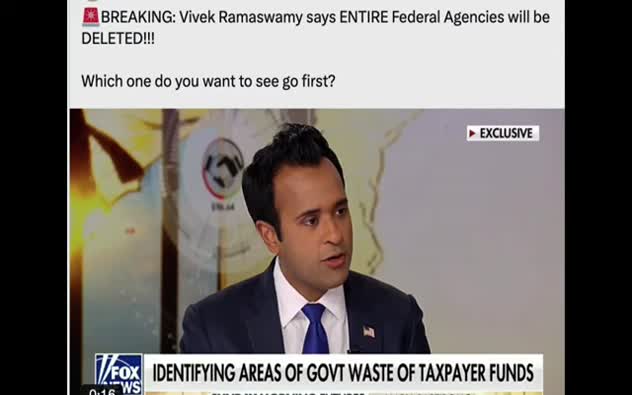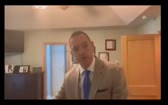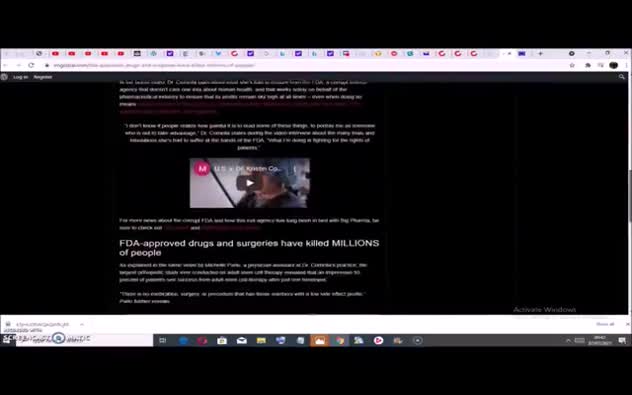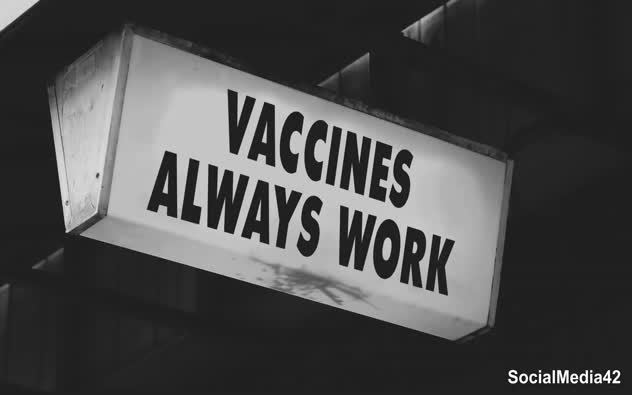Advertisement
Covid Predicted In 2017 At Davos!
Link to video
https://www.youtube.com/watch?v=s4RBsdhpD70
Davos is the legion of doom and the injustice league.
Davos 2017 on youtube search it yourself. These globalist like to brag about their plans.
- Category: Pandemic/PlanDemic/ScamDemic,Medicine / FDA approved Drug ,Predictive Programming
- Duration: 53:08
- Date: 2020-11-28 05:38:36
- Tags: covid-19, covid-19, plandemic, scamdemic, davos, the great reset, klaus schwab
7 Comments
Video Transcript:
Good afternoon. I am Zani Minton-Better from the Economist and I am delighted to welcome you to this conversation about the work of the Coalition for Epidemic Preparedness Innovation, which is, I have to say, one of the more extraordinary initiatives to come out of Davos recently. It is easy for many of us to become cynical about what the World Economic Forum can achieve, particularly in this era of populous anger. But this, for me, has been a very powerful example of the concrete achievements that this meeting can have. It was born out of a conversation a year ago by all of my fellow panelists here and many others who are in the audience. It is a concrete initiative between governments, foundations and the private sector, governments of Norway, Germany, Japan and India, two of the biggest foundations in the world, the Bill and Bill and the Gates Foundation, the Welcome Trust Foundation, strong support from the world's six biggest pharmaceutical companies, GSK Merck, Johnson and Johnson, Sanofi, Tachyra and Pfizer. I am saying this not to make an advertisement for all the individual ones, but to say this really is an initiative that has come together and they were just telling me before we came on stage. It was a meeting, one hour meeting last year, between a back, I think you said 24 people, saying something has to be done. We know, we have learnt from SARS, but most recently from Ebola, the extraordinary danger that Epilemics pose. We know that they are one of the greatest threats we have. We also know that vaccines can protect against those threats, but we know that there is a challenge getting vaccines into a state of preparedness that they can be used quickly and effectively. There is what we, economists, call somewhat of a market failure there. And so the public and private sector came together and over the past year they went from talking to actually doing. This initiative now has contributions, concrete contributions of $460 million and I hear from Bill Gates who I am sure knows better than anyone that we have promises of $700 million. So this has been a pretty big achievement and we are going to spend the next hour talking about what this initiative, CEPI initiative is going to do and how it will quite frankly change and one of the most important threats we face. So with that introduction I will quickly introduce the panel, you know all of them, but to my immediate left going left to write for you, the Prime Minister of Norway, Prime Minister Ernest Solberg, next to her Jeremy Farah, the Director of the Welcome Trust, next to him, his Excellency Alfa Konde, the President of Guinea, next to him Bill Gates, the Co-Chair of the Bill and Million Gates Foundation, and last but not least, Andrew Whitty, Chief Executive of Blacksauce, Smith Klein. So that is six of the members or the five, I'm counting myself, six of the members of the panel and of this coalition, but before we get into the details of the discussion, let's tell you the story of CEPI in a two minute video. This one started with a bat, a tree and a boy called a meal, a life full of wonder, and a world to explode. Soon after, he fell sick and his family did too. Disease spread further still. Uncertainty led to fear. Epitemics affect us all. They affect anyone. At any time, they don't care about borders or nations. They are one of our greatest threats. And with our dense cities, easy travel and ecological change, this red faster and further than ever before. Business is close and airports shut. Billions are spent and loved ones lost. The sound of a cough becomes the worst sound of all. We've sent people into space, created incredible structures, and connected the world in ways we never dream, but were yet to outsmart epidemics. We're always as dead behind. Because we don't plan, we react. We know vaccines can protect us. We just need to be better prepared. So let's come together, let's research and invest, let's save lives. Let's outsmart epidemics. As my microphone gone, I can hear me. Prime Minister, let's start with you. We're always a step behind the video, says, we need a plan. You had that conversation a year ago, you needed a plan. Tell us why no way is supporting it and what the plan is. Well, first of all, it's because Sipa is growing out of the lessons learned. Both from what was good about our response to the Ebola crisis, but also what went wrong. Why we didn't respond well enough and what we lacked in the response. We know that the international response came too late. We know that for the affected country, it was devastating. And a lot of international actors joined forces. They were developed of vaccine against Ebola. They made very rapid progress. And just before Christmas, the Lancet published the results of the final test showing that the vaccine gives effective protection. And I think in a way, this is truly worth celebrating because now we know how to respond much faster the next time. But although it was nearly a record-breaking development of a vaccine, it was too late for thousands who lost their lives and livelihoods. It has a devastating effect on economics, on human lives and societies. It's matched only by wars and environmental diseases and disasters. If you look at what Ginea Sierra Leone and Liberia suffered on economic close, over at least $3 billion as a result of Ebola. And we know that SARS cost $40 billion. And a flu epidemic can cost $700 billion if it really gets strong. And we need to be more aware. And this was what we set out to a year ago. We thought it would be better to be prepared to be ahead instead of responding afterwards. And in this world, I think, taking epidemics seriously, we know that we have problems with antibiotics not functioning anymore, that we get resistance to it. We know that vaccines is a way of handling also known diseases today that might not be vaccine today because we think the antibiotics can work it. In the future, they might have to be vaccinated against. There is a need to be much more prepared. And I co-chair the UN Secretary General's Development Goals Advocacy Group. And I think epidemics is undermining all of those 17 goals. And for no way, you might say Ebola was far away. No, it wasn't. We got one of the doctors back home. We know what it was. And we are a highly developed country. We know how much money we use on one patient. And to make sure that it didn't affect the rest. And we know that all of these epidemics move so fast that we were in right, lucky just getting only one patient, we could have got more. And we got a patient we knew was sick when she left and came to know what we knew it. We could isolate it. We can make sure that we were prepared to help her. But that's why it comes out. This is not just for the countries that are developing. This is also for developed countries. It's the same problem. I think that's an incredibly important point. This is not just foreign assistance, which is something that no way plays an enormous role. And this is self-interest too. It's enlightened self-interest. Jeremy, let's turn to you. And we've just heard from the Prime Minister the broad background as to why it made sense and made sense for Norway and other governments to support this. From your perspective, as Director of the Welcome Trust, you've been kind of at the co-face of working in and dealing with epidemics. Give me your sense of what the need is here that's sepia is fulfilling. What concretely does it need to do to be successful? I think it's, so I speak now as a clinician when I spent the last 20 years also living in Vietnam and lived through SARS and bird flu and then been very involved in the epidemics since then. It's very difficult to get across to an audience just how frightening it is to be at the epicenter of that. You question your whole professionalism, you question whether you should stay at work, you question whether you should go home to your families. And this is what every healthcare worker feels. And I think when we're pausing here just for a second, I think we should all just reach out and thank those healthcare workers around the world who work during Ebola, working during Zika now, just to thank them because they are working in extraordinary difficult circumstances. They're not protected. We have no vaccines to protect them. And they're doing so and they make all of our lives slightly safer. I would like to have a world where we never have to ask a healthcare worker in future to go into an epidemic without knowing that they're protected. And sepia I think can achieve this. We should bear in mind that with environment change, climate change and of course globalization and travel, what happens in Lagos will affect Davos tomorrow. What happens in New York will happen in Beijing. The world is connected. You will all fly after you leave here at Davos and go to almost every country on the earth within a 12 or 14 hour flight. And yet the world is incredibly vulnerable. If I look to just my own experience over 12 years, SARS, NIPA, bird flu, Zika, Ebola and ask ourselves do we have interventions which fit the 21st century? Yes, we have public health, yes, we have hand washing, and yes, we have masks. But we had those in the 19th century. And I think what sepia is going to do, vaccines are not the answer to everything, but it will say that the vaccine space for emerging infections, we will have a vaccine for the most important potential emerging infections and we will do so by working across governments for philanthropy and industry. And we will change the paradigm by which we make vaccines for these epidemics. We will come on to exactly how that will happen a little later in this discussion. I wanted first to turn to his excellency, Alpha Konday, president of Guinea, because I think you, Mr. President, can give us a first hand account of what was the impact that Ebola had on Guinea. What is the world we are now in that sepia is trying to improve the position of? The voice of Dwayne Messier. First of all, I would like to thank all of the people who came to Guinea, Cereleone and all of the healthcare workers who helped us and put an end. Some of them lost their lives, others fell ill. So I would like to thank them. I would like to thank also the Prime Minister of Norway and sepia for this initiative. We believe that there are two important reasons for this epidemic. Our healthcare system wasn't up to scratch 245.4,400,000 people in the U.S. far less in Guinea. And our infrastructure is artificially developed either, but we really need to focus on our healthcare systems. We need really to promote quality healthcare systems in Africa. We have support for this. We have support from the Paster Institute, from other French institutions, American institutions to achieve this goal. So that's one important thing, improving healthcare systems. Secondly, community health quite often, we have NGOs who do help, but who aren't familiar with our customs, our traditions. So in the case of Ebola, where you have cultural impact as well, where there are different ethnic groups involved. It's important to really understand the customs and traditions as well. If you're going to be effective, we also need to work on transfer of technology. I've worked with organisations who are working with us, but ultimately it's us who are responsible for our populations. Quite often, we find it's difficult to transmit technology and use of technology to the population and it's difficult to get the message across. So when we work with organisations in the field, quite often, we find that they expect us to do the field work and think and act in hotels and really don't get familiar with how to transmit the technology or become familiar with real life in our country. So there's also important work in the area of research. Vaccinations, for example, I took the risk of trying a vaccination. I was told it wasn't 100% safe, but I wanted to go ahead and try it to see that it was safe, it's then been rolled out and has been successful. Now we know that there is sometimes difficult to encourage companies to do the necessary research, but we need to mobilise this research and we need to increase its effectiveness. If we're going to be honest about this, we need to work in all of these areas. Thank you. Miss President, I just like to push you on one element of that, which is you have laid out the many aspects of the response that are needed. And you also said that you took, and as you did, you had the vaccine trial in Guinea. What would have happened if you'd had a vaccine in weeks, which is what Seppi is trying to reach? What difference would that have made to the experience that you had with Ebola? Well, of course, if we'd have had it a lot quicker, then the illness of the epidemic wouldn't have spread as far. The WHO, we feel, didn't react in time. That's a fact, I think. We're very grateful to medicine San Frontea, who did really get into the field quickly. When we did have the vaccine, we first of all vaccinated the doctors and health code workers, many volunteers, and they didn't get ill. If we'd have had it earlier, it would have been effective, and it would certainly stop the spread of Ebola, protecting the population. So it would have been extremely important. It would have had a huge effect. We want to see a vaccination that is 100% reliable and 100% financed, so that we really can take care of people. I'm not just talking about Ebola here. I'm talking about other hemorrhagic fever diseases, so thank you very much for asking me that question. Bill Gates, there you are. It would have been there within weeks. You are known as someone who likes concrete numbers and metrics of success. So I'd like to get your sense of, first of all, why did you support this? But secondly, what do you expect and hope that Sethi will achieve? Well, unfortunately, even though there's a substantial risk of various type of epidemics, there's not a natural marketplace, and there's not a natural incentive for people to build products that anticipate that. It simply wouldn't make sense for the private sector on its own to do this work. And so when we look at this kind of risk, the epidemic risk, you've got to bring governments and foundations together to create the right incentive structure. So the good news is that the ability to make vaccines quickly, it may be possible to get that to be dramatically less than it's been. There's a new approach that is sometimes called DNA RNA vaccines that the part you would change to go after a new disease would be a very small part of it. And so a lot of the work, the safety work, the manufacturing work, you could cut that out. It would be even easier than for flu vaccine today doing this seasonal adaptation that is done on an yearly basis. And so the good news is that if you can get, if you can either predict what the pathogen is going to be and get that stockpiled, that's the ideal. Then you have a very, very quick response. The second best case is if you didn't anticipate the pathogen, then you get using the private sector capability that these sepia funded projects will have helped advance. You'll very quickly go in and say, okay, make a vaccine. We don't know how quickly that can be done, but if we can get it down to a year, that would be very good. Now every week counts, we have simulation showing that if you can get out in six weeks, then even a flu epidemic, which is a very fast-preting epidemic, you can have a dramatic benefit too. That's not to say we know that we can get down to that kind of short of time frame. Flu is one, actually, we should invest because we know it's there. We should invest, and I'm sure it'll get done by various actors in any universal vaccine for that. So, sepia is very exciting. It's enough to probably do several of these vaccines and really engage the private sector in a concrete way before the next emergency hits. Nobody really knew which approach should be taken, which diagnostic should be done. There are things that sepia does not cover. It doesn't cover antiviral drugs or diagnostics. And so there should be follow-on efforts for those things. Nor does it cover some of the governance questions like how do you allocate vaccines during a crisis like this. So there's still really important ongoing discussions on those issues, but I really want to thank the partners who come in just in the discussions last year. Everyone's taken leap, but they pulled this together. And even in the next year, we'll have the staff and I think we'll actually bid out a couple of these projects. So this is a substantial step that deals with a problem that can keep you up at night if you think enough about it, which is the world's not really ready for a lot of these epidemics. And Ebola was awful. It could have been even worse. There was even an element of luck that it didn't get into Nigeria in a big way. There was an element of luck that it stopped where it did. And it raised so many questions that we need to be better prepared for next time. I want to come back in a second and ask you about how big that ambition is of how far you're going to go. But first, I wanted to bring Andrew in and get your sense from the pharmaceutical industry perspective of what is it that is missing? What is it that you need most that Seppi can help bring to push this forward? I think what Seppi does for all of the vaccine companies and the six of the companies who joined in to Seppi, I think all feel very much the same way. Plan in prioritisation and a mechanism to essentially create increased capacity in the space of research into these rare unusual but potentially deadly pathogenic threats. So if you think about what happens in an epidemic or a pandemic situation, first of all there's almost no spare capacity in the global vaccine industry. If you walk around any of our vaccine plans, they are running full on all the lines are busy because the world is growing, there is more and more need for vaccine. So the red phone rings and it's the WHO saying there's a crisis and we need any bowl of vaccine. Immediately after the WHO rings a couple of countries start ringing to say we want this vaccine now. That's an almost impossible situation for a company to try and to react to. So and it's so disorganised because actually the world doesn't know if there's a vaccine candidate ready, they don't know whether there's any capacity lined up ready to go. The companies aren't anticipating that phone call. And what Seppi starts to do is to take the kind of things where we've had to react in the middle of the battle of the epidemic and take those things back to peacetime so that we can start to resolve these issues, start to say yes we're not perfect, we haven't got perfect foresight but we can more or less estimate that from these 12 potential pathogens as a reasonable chance one of them could be the next pandemic. So let's start working on them. It doesn't mean we're going to get everything right but let's at least start working. How do we start to think about taking vaccine candidates through to the end of phase two so that when a pandemic starts instead of discussing and debating how to do a phase two trial we go straight to phase three. Those are the sorts of progress points we can make. Why is that sensible for us? Because at the end of the day when it really boils down to it the only people who are going to make a vaccine for the world are the six vaccine manufacturers. And so it's in our interest to make this situation much less stressful, much easier for us to react to without disrupting all of the other day-to-day vaccine manufacturers because we were very close I think in the three companies who were most advanced in Ebola. If it had indeed got worse we would have all been put in the very difficult position of saying do we make Ebola vaccine at scale or do we make rotavirus vaccine or another vaccine and then the world is making a completely invidious choice which could have been avoided and that's why we're so supportive of CEPI and I think all six companies who are represented here today have worked very very well to help bring this to fruition. So CEPI will mean that for a certain number of pathogens there will be vaccines at the beginning of stage two trials. Now I guess then for me the question is you know money is not limitless. What is the you mentioned this was this was in some sense self-interest insurance, your buying insurance. What is the right level of insurance to buy? How much how many vaccines should you how many pathogens should you go after and what should the scale of this be? You're clearly just starting this is a very big start but how do you think of that and Bill Gates I'm looking because I know that you you you think in these terms so what you know what's the ambition in terms of what's the right number to go after or the right scale of this? The the number of potential pathogens out there is far greater than we're likely to do specific constructs for so you know maybe if we're lucky we can cover the things that are 50% or 60% to the risk. Flu is kind of a special one that we should just go go and do but even putting that aside there'll be some predictability and the even the surprising ones will have some relate may have some relationship so that they you're able to just change the vaccine modestly particularly these these new platforms you know I ideally I think we do five or six at our current funding level it's more likely that we'll be able to do two or three but there are some major actors who will participate in this space including the UK and the US and China who whether they come into septif formally or they simply take their programs and make sure that they're complimentary like the US Barra investments the this endeavor will be bigger than the the septi organization itself and I'd say broadly maybe we will get the ten or so that I think would be attractive once we get the ten then I think the global health community should should have a great debate about should we do eleven and our twelve you know did it goes quickly as we want at least we will have exercised the you know how do you go to the regulator and what do you do about stockpiles things you wouldn't believe every question that should have been resolved in advance of the Ebola epidemic was not resolved in advance in fact we can still sort of debate some of these things about trial design that the the septi construct will force the dialogue to continue and even to to to be more prepared. Prime Minister Southered well I think I just follow up on the last part there because besides actually working on concrete vaccines it's also important to have that discussion on how how do we have preparedness for scaling up how do we have a priority on how we do it we can you can do all those discussions that can take lengthy time when the problem arises that you can do it in forefront you can have a scheme you can have an international discussion on the priorities that you are making any questions like this because you are already there seeing the problems that that will arise well so I think it's important to say yes it's it's a workable it's an initiative for innovation on vaccines but it's also a way of having somebody pushing this agenda so that we discuss how how we are better prepared in in the future and I think that is needed because there's so many problems it's overwhelming in a lot of body also in the world health organization that you should deal with so maybe there have to be somebody who's advocating and pushing this agenda. It's unusual for me to quote Donald's Rumsfeld but I think he sometimes did frame some things sensibly you have the you have a known pathogens that Bill was talking about and you know for his world not to be prepared for the known pathogens that could cause an epidemic is unacceptable and that's honestly the situation we're in today and Sepi will address that issue but I think Sepi will do far more than that my hope is it actually catalyzes a new partnership and in these cynical times I think a global partnership with the various players and Sepi coming together is actually a real sense of optimism and hope and I think that's very important but it will also catalyze the whole technological advance Bill talked about RNA and DNA technologies for vaccines of platform approaches so that we're not reinventing a new vaccine approach every time an unknown pathogen comes but I think Sepi has to earn it you have to earn the right to exist first and you have to earn respect first and that's why it's critical that Sepi chooses one two three four vaccines and in the next few years absolutely delivers on those including in my view finishing the job on Ebola we have a safe and effective vaccine for Ebola and we actually have more than one candidate Johnson Johnson GSK Merck all have very good candidates but we don't have a licensed vaccine that has to be finished we have to be able to have a licensed vaccine that could be used tomorrow when the inevitable epidemic of Ebola comes back so the central focus of Sepi will be getting the vaccines and getting the vaccines to to the second stage but as you've all mentioned there are things beyond that there's improving distribution schemes and then presumably there's also something about streamlining regulatory approval I mean isn't part of the problem or wasn't part of the problem the difficulty of having the time it takes to get regulatory approval so Angela start with you there do you think Sepi can play an important role in these things that are sort of it's actually outside the lab if you will yeah and I think really it's to the point that Bill just made and what Sepi does is it takes something which historically in between pandemics has been treated as a theoretical debate and makes it very crystallized so if we're working on a Merse vaccine we can actually sit down with the regulators right now and say okay if we have a Merse vaccine which is based on this platform what do you want to know to discharge your anxieties of safety and and the like and quality those debate it wasn't really about timeline to get regulatory approval it was having the argument over how do you do what is the question you are going to ask in the first place I'll never forget in September of the Ebola pandemic being in Geneva listening to global regulatory organizations argue with each other over the heads of the industry and the countries involved whether or not the trials should be placebo controlled or not that debate could have and should have happened years in advance and there should be a pandemic response kit which said right we go to phase three with this candidate we've all agreed this is the basis liability the same we still don't have a practical solution for global deployment of emergency vaccines from a liability point of view and while some people will say well how important is that the reality is when you take what will always be even after sepi ascension extremely accelerated development program and you deploy in an emergency situation you will find private sector companies reluctant to embark on an open ended global liability risk we all know that the American government resolved it with the prep act years ago but the rest of the world hasn't moved those are the sorts of things which I hope won't be done by sepi but in a way sepi takes away the excuse not to talk about it because what sepi does is it creates it turns the theoretical into real and then everybody around the real issue has to start to step forward with their resolutions and I think then you start to deliver something much more comprehensive in terms of pandemic readiness so it's at the very least the right people around the table with the right incentives to make sure that before the pandemic hits you actually have some of this stuff like that I just want to make one other very much slightly more technical point if I can if this works the way I think we all hope it works it's a network and the way I like to think about sepi from the manufacturing point of view it's a network of volunteers first of all who volunteer into the network their whatever capability knowledge that they feel willing to that's relevant and they feel willing to volunteer if that works effectively that creates the most extraordinarily novel open innovation environment and what we're really potentially buying here is not insurance for the first time but ultra high quality insurance in a way which we have not been able to do in the past and I don't think we should lose sight of the novelty of how that network could work together if this plays out the way we hope it does. Miss president let me bring you into the discussion here what would you we've heard now there is different ways in which sepi will move things forward particularly in vaccine preparedness what would you hope that it brings what would you want it to achieve so that it really changes on the ground the environment you face. Well first of all we'd like better collaboration with the government vaccinations of course but prevention is even better certainly in Africa if we see epidemics develop well that's essentially down to an ineffective health system so we need to improve the health system and that can be done through better research if we take the case of Ebola in Guinea we weren't quick enough in analysing the strain to see that it was Ebola it wasn't until it got to Konakri but we were able to get in touch with the Paster Institute and find out actually what it was it's far too slow so we need support in that regard and we need to ensure not only that it is as a high level in densely populated areas but that it reaches right down out into remote areas as well so that there can be very quick response throughout the country so yes we want better vaccinations but we believe that with a high performing health system it won't then be necessary for people to send us international experts etc we would be able to take care of it ourselves on the ground and that for us is better obviously it's great if people come and help us but it would be even better if we could do it ourselves within the capability of our own health care system thank you Jeremy is is sepi plow how is sepi planning to work with agencies on the ground with the rest of the infrastructure that exists yeah I think again it goes back to one of the strengths of sepi and as you can imagine over the last year you know there's been quite heated debate at various times there's people coming from a very different perspective but but particularly following on from Ebola and what the President just said countries in West Africa have been involved in all of these discussions we've been fortunate to have Metins on Frontier as a member of civic society there and often at the front line of the epidemics and I think all of the partners have absolutely bought into the idea of the technological advances the regulatory environment that we've heard changing and the actual making of vaccines but there's another piece which is I think critically important to all of us and it's not just the foundation and that is that ultimately sepi also has to deliver vaccines to the world and make them accessible independent of people and countries abilities pay for them and the public private partnership as well as with WHO on board is absolutely committed to make sure that we make those vaccines available and affordable to everybody that needs them and that's a core principle of sepi which all of us have signed up to so that's within sepi's remit to ensure that well contrast and I'm sure the foundation would not be part of this if that were not true and and from the industry's perspective Andrew yeah no we've made it very clear so I speak for GSK specifically we're engaging in this on a cost coverage basis so we're not looking at a kind of no game no loss basis it's up to each individual company to think about how it engages obviously it's not for any any given company or entity to dictate terms but certainly from our perspective we think that's the right basis to go forward and and we're looking forward to activating essentially we you know we think there's a significant benefit for everybody here we think it's right for patients we think it's right for countries we think it's right to streamline and simplify this space and as a consequence it's good for us because it's going to take away the disruption risk for us and it's going to mean that when the phone does ring we can say yes you know more often than we would otherwise be able to do so this is I mean as you've now heard in in in very illuminating detail an extraordinary initiative but I would I would not be doing my job as a skeptical journalist if I didn't ask you about what are the potential risks what are the potential downsides what's the danger that this becomes a well-meaning talking shop but it doesn't actually achieve very much so Bill Gates let's start with you what what worries you if anything about sepia actually achieving what it's said out to do is it that not enough people will cough up is it that the admirable partnership here that exists on this stage will break down is it that the incentives won't be right what what are the biggest concerns do you think I I still think we need to do more about epidemics about and the president talked about investments in high quality health care for normal diseases being a piece of that very specialized surveillance where when you see unusual circumstance you have sophisticated labs nearby that there are some initiatives like when called champs that we're working on that will will bring a piece of that but but still not cover it fully so my greatest concern is that if people like oh we have sepia therefore this epidemic thing we solve that even a straightforward thing like how we get probably govy to buy the stockpile how big the stockpile should be we have worked that out now I think that piece actually fairly straightforward because govy is amazing one of the best things we've done countries including all the supporters here of sepia have been generous enough with govy that I think we we do have the resources there for the the stockpile the diagnostics will be very important when you're in an epidemic the idea of who's infected and who's not infected if you can't tell then your whole quarantine thing gets you into these very tough situations the countries were given very contradictory advice about what to do about quarantine because we didn't and they we didn't have a diagnostic first even then when we finally got it it was still a fairly complex machine that took too long to get the results from so my main worry yes there's still some time to be risk on these new platforms but my main worry is that the world will still fall short of taking care of epidemic response for mr. selbog how do you do you share that concern and how will you make sure that our new ways pushing everyone else to to make sure that sepia is not so the you say tick we've done enough now now we can stop worrying well we are planning to use our best people on this to work with sepia to make sure that that we put a focus on on finding the good solutions it might be challenging that maybe there there will be other bodies who should have taken more care of that who have not done that and they will now take one step even further behind i think it's important that we are we are saying we also see that there is a responsibility for us all to to push this on the on the world health organizations agenda to make sure that because that's the platform where you can have all the governments all the health authorities around the world to to operate together on how you deal with this when the crisis come because you have to go from step two towards in fact the wreck used to back saying make sure and then of course when there is no need of if there's not a feeling of emergency things take off in too long time and that's also a challenge in this i mean the regulatory system yes well it's we are good at bending all of those regulatory systems when people are dying but when we are just thinking about the potential of people are dying then maybe the whole regulatory system will be going too slow so i think there is a that might lead to having an organization and having a work and a corporation and coalition on this but not being not reaching the time limit for the next epidemic which we should try to do Jeremy how do you maintain that sense of urgency what is on you know what should be and what is on sepis to do list in the next let's say year or two so sepis already you know there's a there's a long list of potential pathogens and there's a short list and sepis quite rightly said we're going to focus on some initial pathogens because they may not be the right pathogens to focus on let's be honest but what any new organization needs to do is to earn the right to exist and i think by focusing in the next one to two years on delivering on those promises that have been made there's nothing better than getting support than if you're successful and if we do that in the next one to three years i believe and having watched the history of Garvey's development and the amazing contribution it's made then the world will really get behind and back it so i think the biggest most important thing to do is focus on what it's setting out to transparently and delivering on that and the greatest risk the greatest risk is to do what we did after SARS and that's to forget it and move on but the metric if the metric of success is to find to bring vaccines for these three pathogens that you've identified those pathogens haven't been hopefully will not be the basis of the next epidemic so it will still be preventative it will be still be you know insurance how will you ensure that you maintain the political momentum to say this is really something you need to keep pushing for when your your output is is hopefully something that will never be used oh yes you know that but that's where i have this special interest in the combination of this towards the whole with the the whole change of antibiotics now because we need more vaccines because antibiotics will not function in the same way in the future and you know the British government made an estimate that in you two thousand forty fifty that will be more people dying because of antibiotics that are not functioning and of the all diseases than there are people dying of cancer so this is an agenda that will move forward because it interlinks between if you get the flu yes you can do you can do a lot of work on and you can work on antibiotics too make sure that people are getting getting cured but a lot of people will die if you have more resistance resistant antibiotics so it's I think we have to see that this fits into also this big agenda that you and discuss that are summit in in September and which is going to be an increasing big problem for us Jeremy you will. Well one thing that this doesn't directly address is bioterism intentionally caused epidemics and so the broader agenda for governments is going to have to include that in fact you know i'll be at the Munich Security Conference next month and this idea that some of these investments that are made for the diseases that are already out there the likely case for epidemics and what preparedness would look like for the intentionally caused things you know that needs to be discussed it's very hard to rate the probability of bioterism but you know the potential damage is very very huge and and sepia I think appropriately is not in that space we've got very finite resources but some of the the the governments that are in and some that are not in I'm hoping over the next few years there's there's some some substantial investments. So you will catalyze that in part even though it's not in that space itself it will it will help frame and catalyze that order. Yes and some of these platforms are exactly what you would do if your only goal was to create some protection there these platforms are very helpful so the two things relate but it we do not say this is a a solution for that Jeremy you wanted to ask them. Yeah I think what is also critical is and sepia has a crucial role in this and that is to maintain the sense of urgency and be a focal point for some of these discussions and you know as the World Health Organization is strengthening its epidemic preparedness as the World Bank is playing an increasing role to ensure there's financing as Garvey is involved I mean these players have all been part of this sepia initiative so you know if we move on after the horrors of what we went through in Ebola then then that would be the greatest mistake I I think this is the chance having had numerous warnings over the last 12 years and the coming together of many people in this room and around this plenary now I think this is the moment to change things and the commitment from Norwegian government gates foundation industry well contrast etc has been staggering. One one question that may seem to go back to the beginning of our discussion but it's one that I think is important is how do you and you've you've all come together and it's extraordinarily impressive how do you actually decide which pathogen you're going to go take first how when you had that discussion around them you've got limited resources Andrew how do you choose them? Well no well sepia does is rely on an independent scientific advisory board so that I mean it's really important to understand that this isn't the vaccine companies cooking up in a corner with Jeremy and Bill what you know let's do what we can do the the this is coming much more from an independent scientific advisory group who look at the potential threats look at look at the likelihoods look at the the various pathogens which are out there and starts to prioritize those then the up then essentially what sepia will do is issue requests to the man up to the world essentially you don't have to be a member of sepia but you know essentially to say to people who've got research capacity in these fields have you got technology capability which could be put to bear on Merse or on Nipur or master or whatever it is and then that's what starts to populate the knowledge base and the research capability and hopefully we see some significant progress and I think a lot of really good work was done at the very beginning of this to make sure that there was a really strong independence created around the scientific decision-making and prioritization setting and as the last set of questions that I'm going to ask each of you I'd like you to look forward in and do a little bit of prediction in in in slightly different ways each and and I'm going to start with you if we meet again well we will meet again next next this time next year what will you hope sepia has achieved in one year I think in one year that we would have successfully initiated on at least one if not two pathogens that we would have life wouldn't be perfect but we would have got into a rhythm of learning very quickly so I think we have to be realistic and one of the things I like about sepia is we haven't waited for perfection before we've begun everybody's gone into this with a sense of optimism but taken a bit of risk we're all putting our business models a little bit in play here and that's required so we need to learn as we go through this year what I hope a year from today we've got work in progress on one or two pathogens that we're feeling like we're making progress that we're feeling like we're building scientific synergy somehow in the program and we're beginning to spin off challenges to organizations functions outside of sepia that others have to start responding to and they indeed start responding because they believe there's some credibility around sepia that's a that's a very concrete to-do list Bill Gates I'm going to ask you to look a little further ahead in the crystal ball five years well with any luck in a five-year time frame the initial two or three projects would have had success that is we see the correlates that we hope to see and in many cases we will have chosen to stockpile those things and and so we will really be ready particularly if we do complementary work on a diagnostic and we improve these surveillance networks we will be far more ready than we are today and Mr President I'm not going to ask you to to cast look ahead too far but what is for you the most concrete contribution that sepia will make in let's say a two to three year framework we have possibilities now we are looking at the possibilities for research in Africa working with sepia and african governments hopefully we can move forward and see vaccinations no longer rely on foreign laboratories but on african laboratories who can then produce those vaccines and we believe that can be a very positive contribution over the next two to three years thank you thank you um Jeremy I'm going to ask you about the financial side how big does sepia need to be 700 million now what does it need to be I'm happy with 700 million but if anybody wants to contribute they're very welcome um a number of governments and obviously other agencies have stepped up I think 700 million is an enormous starting point and I think with the focus that we are going to bring in the next few years that should be able to deliver the initial mission and I believe that with the success of that then like with Garvey like with medicine from malaria then success will demand future success and more financial resources will come um but I think we've made a phenomenal start um yeah Prime Minister the last word is yours what are your expectations well my expectation is very simple we have to be prepared for the next epidemic and the next one after that and the next one after that because they are coming and we might hope that we will manage to stop it from coming but we are more people the nature is playing with us sometimes too so it changes and so we just have to be prepared and I think this is as I said in my early statement the economic consequences are as devastating for those who are hit as wars and conflicts are the human suffering as we saw is immensely and um it should be therefore absolutely not just the countries that are standing behind it now except you now should be more countries and more organizations more focus in the future on the older sides of our epidemic awareness should be better thank you the stakes are enormously high but this is a very big step forward with that our conversation I'm afraid has to come to an end but I would like to call onto the stage all of the other founding members of sepia there were more than the five panelists here for a if you will a team photo to mark this occasion so if you would thank our panelists for the conversation and those of you come up thank you










 Donate
Donate









